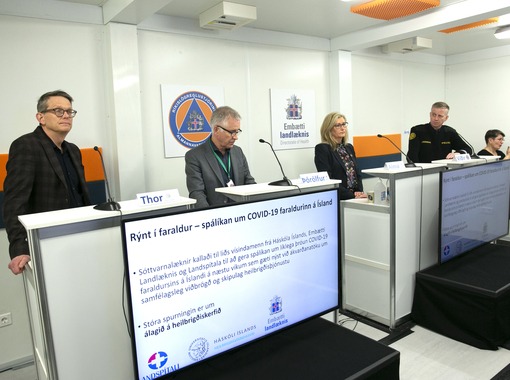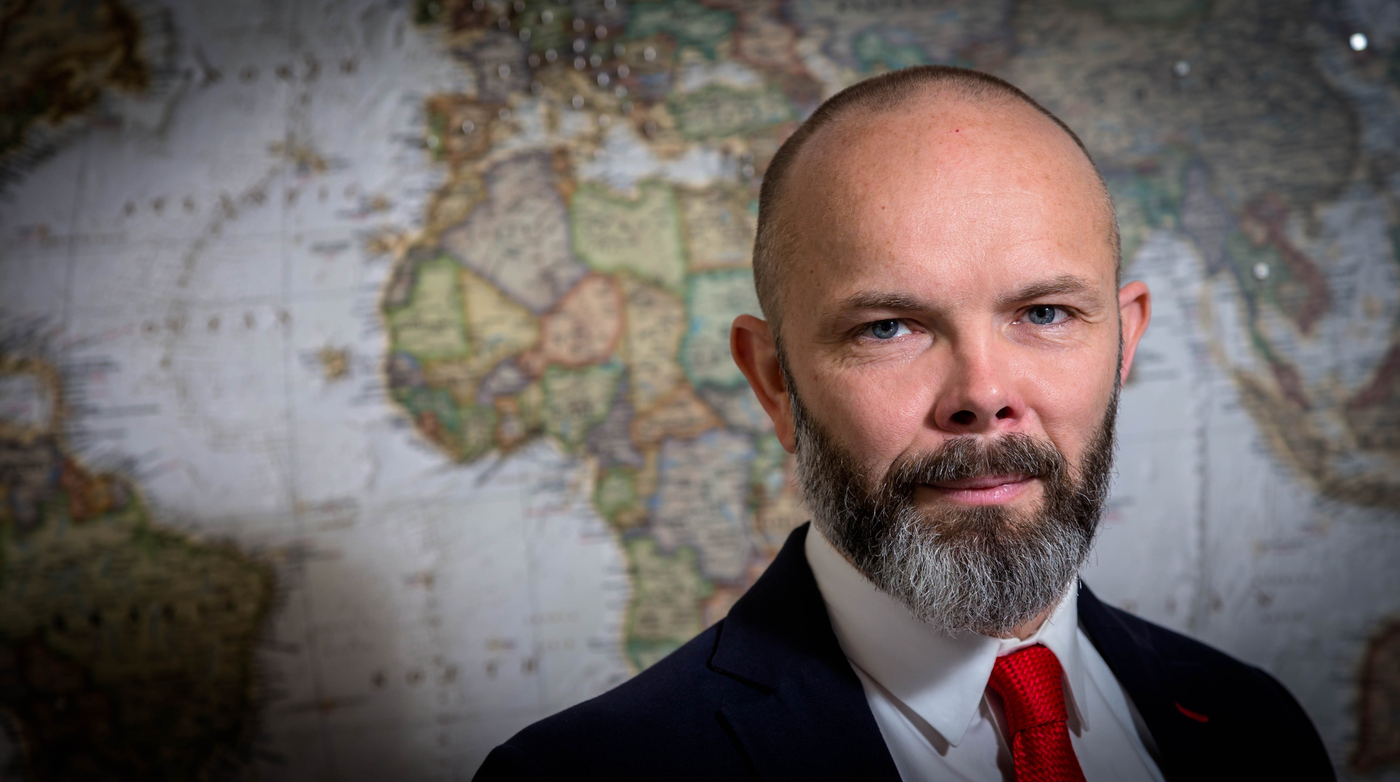"At the beginning of the epidemic last spring it caught our attention that many countries seemed to be ill prepared for a pandemic such as COVID-19 and they reacted very differently. Countries that have a great deal in common, such as the Nordic countries, applied different methods to tackle this foe," says Baldur Þórhallsson, professor at the University of Iceland Faculty of Political Science, who is working with his domestic and international colleagues, as well as University students on a study on government reactions in Iceland, Norway, Sweden and Denmark to the Corona pandemic.
According to Baldur the research is mainly focused on the whether specialists or politicians steer the governmental policy in these countries. "It was evident right from the beginning of the epidemic that politicians were in charge in some countries regarding responses to it but in other specialists seemed to have the most influence in governmental policy making. We found this interesting and worth studying," he says and adds that the aim of the study is also to gain an insight into how diverse governance can influence strategic planning and how leaders and experts behave in crisis management.
Baldur leads the project with Asthildur Elva Bernharðsdóttir, an independent research scholar at ReykjavíkAkademían and sessional lecturer in crisis management at the Faculty of Political Science. Collaborators from the other three countries that are in the study also take part. These are Per Lægreid, professor emeritus from the University of Bergen, Fredrik Bynandier, associate professor and director of the Centre for Societal Security, and Hanne Foss Hansen, professor at the University of Copenhagen. In addition, three students at the University of Iceland worked on this project this summer, Hrafnkell Guðmundsson and Guðný Bára Jónsdóttir, master students in international politics, and Vívill Harðarson, undergraduate student in political science.
"It was evident right from the beginning of the epidemic that politicians were in charge in some countries regarding responses to it but in other specialists seemed to have the most influence in governmental policy making. We found this interesting and worth studying," says Baldur Þórhallsson. IMAGE/Júlíus Júlíusson.

Framework in crisis management
The basis of the study is a methodology developed at the Centre for Societal Security and Moynihan Institute of Global Affairs at Syracuse University in the United States. "Governmental strategic planning and decision making in connection with the epidemic in the four countries is put into a comprehensive analysis framework and evaluated. Hundreds of studies on crisis management have already been entered into the framework," says Baldur and adds that Ásthildur Elva has led many studies on crisis management, both in Iceland and abroad using this analytical tool.
"Within the framework we look at factors such as preventive measures, preparedness, flow of information, management, groups in decision making, leaders, culture, collaboration and conflict, and lessons learned. Ásthildur Elva and I worked on a study a few years ago on the reaction of the Icelandic government to trauma? with special emphasis on the smallness of the community in decision making. There is still much to learn about the effects of a small administration and closeness in small communities on public policy making during traumas? and we found it ideal to take this up again and dig deeper into the effect of the smallness on governmental decision making in the current pandemic," says Baldur.
Asked to comment on the results Baldur says that there is a lot of work still ahead in comparing governmental policy making in the four countries and their decision within the study framework and continue to analyse the governments' responses to the pandemic, as it is still ongoing. He emphasises furthermore that with this comparative study on the response of the four countries to the pandemic we will get a clear insight into strategic planning and their methods of governance.
The outcome of this project and the research results will be distributed in diverse formats according to Baldur, including podcasts, policy briefs, social media and websites. "The results will, furthermore, be introduced at international conferences for political scientists and published in scientific journals. Four short podcasts have already been made and published on the project's Facebook page: "Áfallastjórnun og Covid-19: Leiðtogar og sérfræðingar" where the research and its current status is explained further," adds Baldur.




